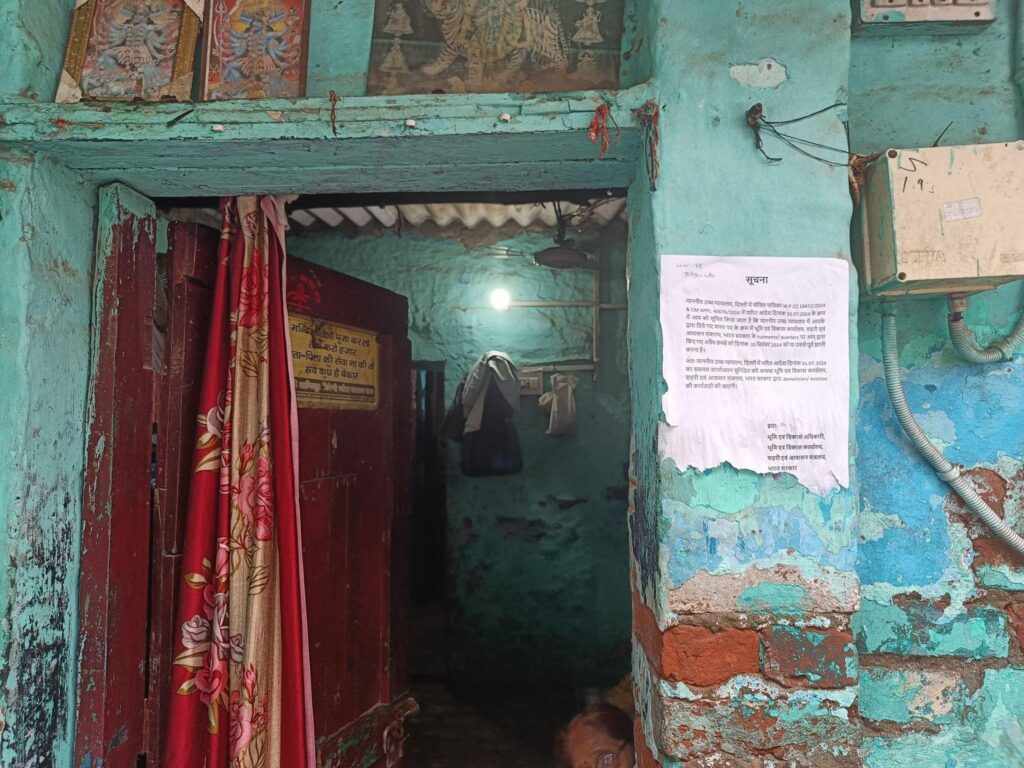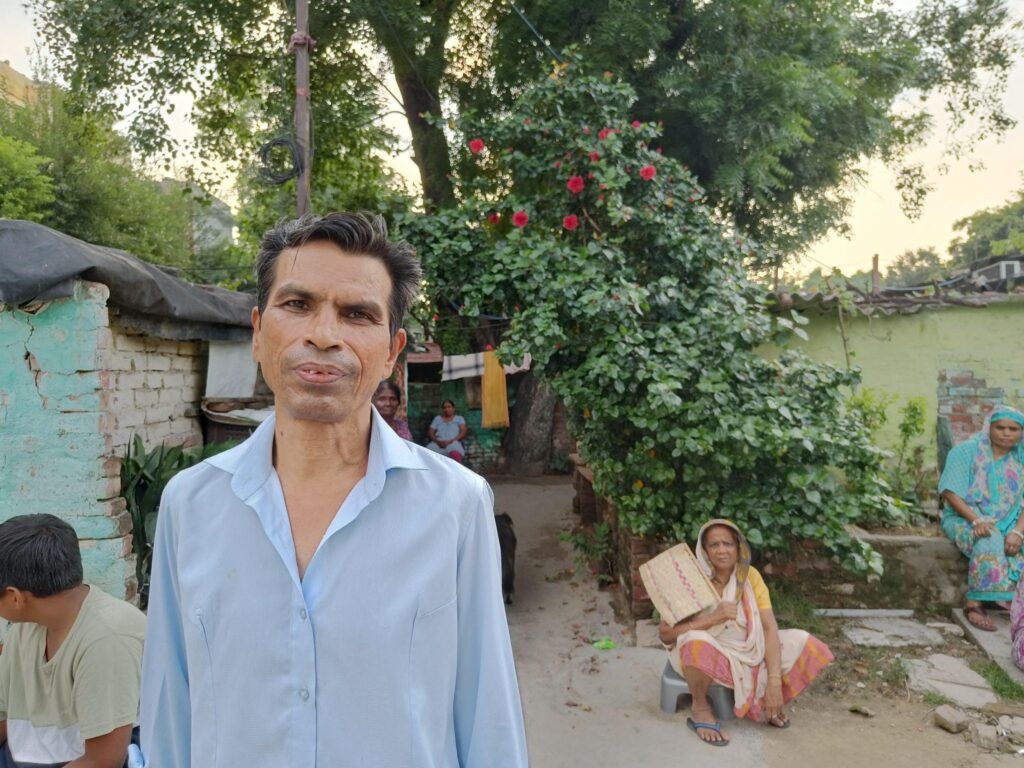New Delhi, September 9: In an urgent development for the residents of the Khyber Pass Hostel in Civil Lines, the Delhi High Court has preponed their eviction date from September 30 to September 15, 2024.
The Land & Development Office (L&DO), of the Ministry of Housing and Urban Affairs, began a demolition drive on July 13 that displaced over 250 families from the area. However, on July 31.
However, on July 31, residents received a judgment from the Delhi HC after an appeal on humanitarian grounds, which granted them two months more to vacate the premises.
However, inexplicably on September 3, 2024, Justice Sanjeev Narula of the Delhi HC ordered a revised date after considering a fresh application by the L&DO. This application argued that the court’s order “has been partly carried out…while a majority of encroachers have already vacated the subject land, some of them, including the petitioners herein, still remain in occupation of the land as they have been granted protection from this Court till September 30, 2024.”
The court has ruled in favour of this argument, asserting that “the affidavits of 104 out of 122 residents have been filed. Accordingly, it is directed that the hutments of the residents whose affidavits have not been filed, will not be protected by the order dated July 31, 2024 as modified.”
In other words, the houses of 18 families may be demolished any day with complete impunity. The remaining 104 will receive time no later than the September 15.
This has put tremendous pressure on the residents, who are mainly from the Dalit community. In an alarming move, they have written an open letter to the President, declaring their desire for euthanasia.

No sign of resettlement
The Khyber Pass Hostel housed personnel from the Ministry of Defence before going into disuse several decades ago. The current residents are the descendants of the service staff kept in the servant quarters. They have been occupying these quarters for 70 years now.
Notably, one resident Mohammed Mobeen (52), who is also the secretary of the Housing Working Committee of Khyber Pass, has been writing to various government departments for decades urging resettlement. Much of the correspondence that these reporters have accessed suggests that there was no official policy and no funds based on which resettlement could be carried out. These letters, exchanged with various representatives of the Delhi Development Authority (DDA), state that the DDA could act to resettle the residents only if the Ministry of Defence provided the resources.
However, after several decades of non-action to relocate the residents, the L&DO, who leased this land to the Ministry of Defence, circulated an eviction notice on March 1, 2024 giving the residents till March 4, 2024 to vacate the premises and begin demolitions.
Petitions filed by the residents halted the drive till July 9, 2024 when the court ruled in favour of the L&DO, calling the residents “rank trespassers” with no claim to resettlement since the Khyber Pass hostels are not recognised as a jhuggi-jhopri cluster by the Delhi Urban Slum Improvement Board (DUSIB). After granting the residents till September 30, to vacate on humanitarian grounds the court has now revised this date to September 15.
“This is not remotely enough time to pack our lives and move, given that our generations have been living here even before independence. The court should have given us at least six months or more,” says Mobeen.

Residents under pressure
Usha (60), who works at a local NGO and is a resident of Khyber Pass’ Chaurasi Line, is a single mother of four, one of whom is disabled. With the imminent demolition, she is looking for houses to rent in Burari, which will be significantly farther from her workplace. “Wazirabad is closer but nothing is cheaper than Rs 10,000 there,” says Usha.
Sunita* is equally worried about the rents which have increased due to the ongoing demands. “My husband supplies disposable cups to markets and earns between Rs 5000-6000 a month. If the rent is 7-8k then how will we survive?” says Sunita. Most residents here are informal workers who earn anything between Rs. 8000-18,000 per month.
“We have been living on the margins here for more than 50 years, and we are now being evicted by the government even from our own homes,” says Ahmed, another resident. “Refugees from Pakistan are to be given settlement, ration, and jobs. But citizens themselves are being dragged out to die on the streets. The prime minister who calls himself the son of a poor man is having the poor removed from their homes. The L&DO, Ministry of Housing and Urban Affairs, and therefore central government are responsible for our displacement,” adds Ahmed.
A harsh judgement
Kawalpreet Kaur, a lawyer with the Human Rights Law Network (HRLN), a collective of lawyers and human rights activists that provides pro-bono legal services to marginalised communities, calls the Delhi HC’s decision to not rehabilitate the residents of Khyber Pass, harsh.
“Despite past judgments like in the case of Ajay Maken vs Union of India (2018) and Sudama Singh vs Government of Delhi (2010) that established that slum dwellers have a right to rehabilitation, of late courts have been overriding these precedents. Instead of protecting the constitutional rights of its citizens, the court has started acting like municipal corporations monitoring who is legal and who is not,” says Kaur.
The residents claim that they have been paying electricity bills and voting in the neighbourhood for several decades. “How come we are illegal now and not when the government was providing us facilities?” says Sunita an old resident of the settlement.
Recently, the SC ordered the Uttarakhand government to create a rehabilitation plan for over 50,000 residents who had been living on ‘encroached’ railway land, adjoining the Haldwani railway station. The court argued that while encroachment is an issue, providing humanitarian aid is the state’s foremost responsibility. There too, the residents had been living even before independence.
While DUSIB states that there are only 675 slums in Delhi, the state government’s official estimates from 2012 belie this claim, putting the number at 6343.
Spate of demolitions
Due to this spate in demolition drives across the city, residents are speculating about the potential use the Khyber Pass land will be subjected to. In 2003, houses in what used to be Durga Basti, located across the street from Khyber Pass, were demolished by L&DO to make way for a Delhi Metro Rail Corporation (DMRC) depot and commercial complex.
for a Delhi Metro Rail Corporation (DMRC) depot and commercial complex. In addition to that initial project, a residential complex has been built by Parsavnath Developers Ltd, and now, after a series of bureaucratic developments, a shopping mall, namely VR Metropolitan, continues to be under construction after decades via the MGF Group.
Some of the residents of Khyber Pass claim to have had tea stalls, other informal businesses, and houses in the erstwhile basti, and claim that they were compensated for its demolition. The aggressive push for the evictions in Khyber Pass Hostel, and yet the refusal for compensation or resettlement, has led to speculation that this land is about to be used for some similar development projects for the more rich in society.
Several young men these reporters spoke with had outbursts of anger against the central government and declared that they will not easily give up their homes. Rajan* a young resident recalled, “They said they will uplift the poor. Now they are destroying our homes for the rich.”
Notably, according to a report published in March 2024 by the Delhi-based advocacy group Housing and Land Rights Network, approximately 2.8 lakh residents in Delhi were rendered homeless due to forced evictions and demolitions in 2023 alone.
*Name changed to maintain anonymity.
(The author. Ankita Dhar Karmakar is an independent journalist based in Delhi and Sidharth Singh is a freelance writer, currently teaching at Ashoka University)
